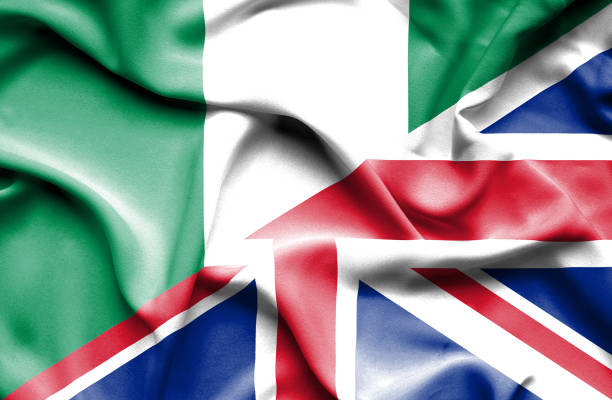
In recent years, Nigerian designers have emerged as a prominent force in the international fashion scene—not just creatively, but through formal recognition by institutions in countries like the United Kingdom. According to an analysis by The Telegraph, more and more Nigerians have been granted UK visas under the Global Talent Visa scheme for fashion than any other nationality. This trend highlights both Nigeria’s creative strength and the UK’s increasing focus on ethnic diversity in its cultural sectors.
What Is the Global Talent Visa?
The UK’s Global Talent Visa, introduced in 2020, allows individuals with exceptional talent or promise in fields like science, engineering, humanities and the arts to live and work in the UK without sponsorship. In the fashion industry, endorsements for this visa are handled by the British Fashion Council (BFC), which assesses applicants based on their contribution to fashion, their potential for growth and their international impact.
The BFC receives approximately £2 million annually from the Department for Culture, Media and Sport to promote British fashion and has increasingly emphasized inclusion and diversity in its initiatives, especially following the Black Lives Matter movement of 2020.
Nigerians Leading in Fashion Visa Applications
Between 2019 and 2024, Nigerian designers submitted 291 applications for the fashion Global Talent Visa, more than quadruple the number from the second-highest country, China, which submitted 67. Out of those Nigerian applications, 71 were endorsed by the British Fashion Council, the highest for any nationality.
This surge is not accidental. The number of Nigerian applications grew from just 3 in 2019 to 145 in 2024, showing a rising awareness and strategic use of the visa route by aspiring designers from Nigeria.
Why Are Nigerian Designers So Prominent?
Nigeria has a long-standing tradition of vibrant textile production, intricate embroidery and bold aesthetics that reflect its diverse ethnic and cultural heritage. Lagos, the country’s economic capital, has become a fashion hub, bolstered by high-profile events like Arise Fashion Week, which has run for 13 years and is endorsed by global figures such as Naomi Campbell.
This thriving local industry has gained global attention. In 2022–23, the Victoria and Albert Museum in London hosted a major exhibition on African Fashion, reflecting growing Western interest in design from the continent.
Moreover, Nigerian designers are increasingly capable of using platforms like Instagram and YouTube to promote their work and build international reputations. Some applicants for the Global Talent Visa have cited local news features, blog mentions and even Instagram engagement as evidence of “international media attention”, a requirement for the visa. Others have used screenshots of online sales as proof of their commercial success.
Social media has also played a role in spreading awareness about the visa route. Several Nigerian designers have posted YouTube videos and Instagram reels advising others on how to apply. One influencer encouraged followers not to “limit yourself to the post-study work permit” but to explore the global talent route, calling it a more viable long-term option for staying in the UK.
Challenges with Endorsements
Despite the high volume of applications from Nigeria, only 59% of them have been endorsed by the British Fashion Council, a relatively low approval rate compared to other countries. Only Ghana has a lower endorsement rate. This suggests that while interest and ambition are high, many applicants may lack the necessary documentation, industry standing or international visibility required for endorsement.
The overall endorsement rate for artistic Global Talent Visa applicants across all nationalities is about 72%, with over 5,000 applications received and 3,600 endorsed by the UK’s Arts Council, which oversees most of the artistic disciplines except fashion.
Nigeria’s Broader Cultural Ascent
This surge in fashion visa applications is part of a larger trend. Nigerians have also topped the charts in literature-related applications, including categories for poets and oral storytellers. Between 2019 and 2024, Nigerians submitted 729 applications across all artistic Global Talent categories, second only to the United States (977 applications).
This broader cultural export underscores Nigeria’s dynamic role in the creative arts globally. From Afrobeats to Nollywood and now fashion, Nigerian culture is increasingly shaping global aesthetics and narratives.
A Shift in British Cultural Policy
The UK’s support for diversity in creative sectors is not purely altruistic, it’s also strategic. As Britain redefines its global identity post-Brexit, attracting top-tier international talent is crucial for remaining competitive on the world stage. Supporting fashion talent from underrepresented regions like West Africa is a way to enrich the domestic industry, expand global reach and meet diversity targets.
By giving endorsement powers to the British Fashion Council and funding diversity-driven programs, the UK government has made clear that fashion is not just commerce, it’s diplomacy, soft power and cultural strategy.
Conclusion
Nigerians are leading the world in securing UK Global Talent Visas for fashion, driven by a blend of homegrown creativity, international ambition and strategic use of digital media. While not all applicants are successful, the sheer number of submissions reflects Nigeria’s emergence as a global creative powerhouse.
As both the UK and Nigerian fashion scenes evolve, this visa route may become a model for how countries can mutually benefit from cultural exchange and diversity in talent pipelines. For many aspiring Nigerian designers, the UK represents not just opportunity, but a runway to global recognition.
Disclaimer: This article provides general guidance only and does not constitute legal advice. Civil procedure rules and case law can change. Always seek professional legal advice tailored to your specific situation before acting.